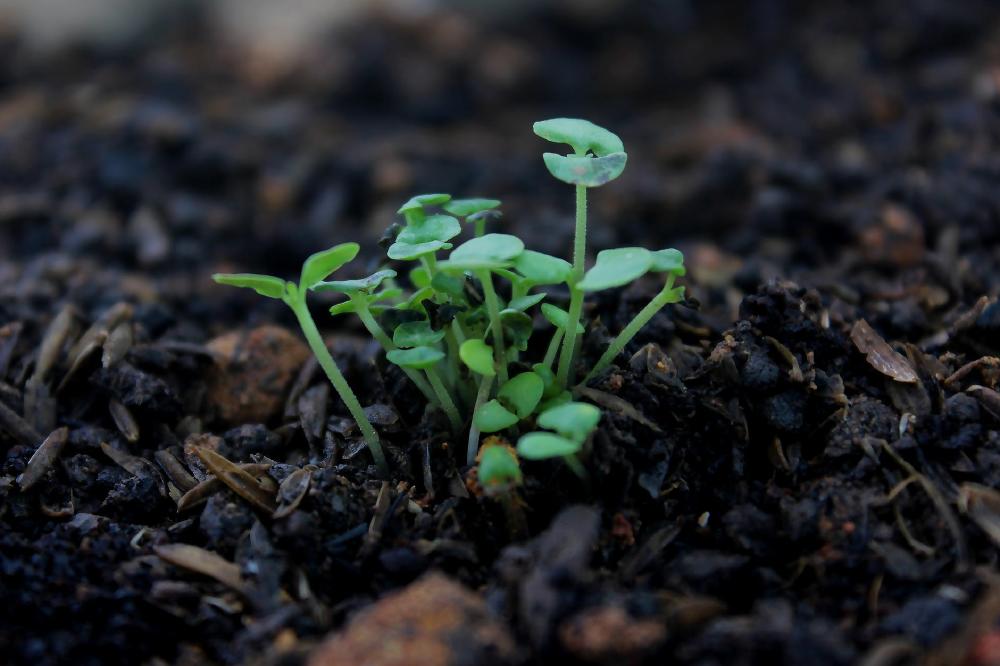
Composting comes along with many benefits but also with some types of "problems" like bad smell or being too wet, sometimes. Has your compost started to go look too soggy? this article is about the reason why this happens and easy tips to fix this problem and avoid it in the future. Are you ready?
Composting has become a popular practice among people who are concerned with making their lives more sustainable. We all worry about the actual damage that human activities have caused to Planet Earth. Composting is particularly a great activity with a great positive impact on the levels of pollution.
Those ones with a good disposition for hand-on experiences turned composting into one of their favorite sustainable and gardening activities. And with good reason because composting has many benefits: you do not need a lot fo stuff to get started, you can make it at home and... oh yes! you are helping the planet!
However, composting may do pose some problems, especially at first. So, whether you are a compost beginner or an expert looking for the perfect composting technique, you can make yourself comfortable and read next...
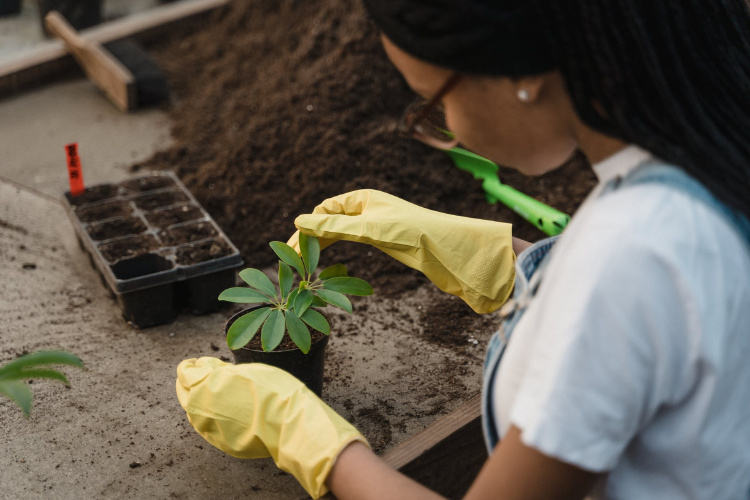
Composting is by definition, the natural process through which any kind of organic waste or material decomposes into soil, which turns to be a great natural fertilizer. Organic waste comprises almost any kind of organism that was once alive, remember the saying? "You're made from dust and you'll return to dust"... well that's basically the underlying principle in composting. Under the right conditions and a lot of love and patience, anything that was organic breaks down into soil again. Please, if you are interested in this, don't miss our article Here is the complete Guide on how to Composting at Home.
So that's how composting became so popular and it's one of the most popular gardening activities among the sustainable community, nowadays. The greatest advantage of composting might be that you do not need many materials to get started with, just your decision and a spot your backyard (if you live in an apartment you can find an indoor place or even your balcony! Of course, you can also use a bin, but at the beginning a simple pile will do.
Another great thing about composting is that it's one of the greatest and easiest ways of helping the planet! Think about this: If you compost your organic waste at home, you'll be preventing that waste from ending up in a landfill. So that's direct impact on the reduction of your carbon footprint and thus, pollution.
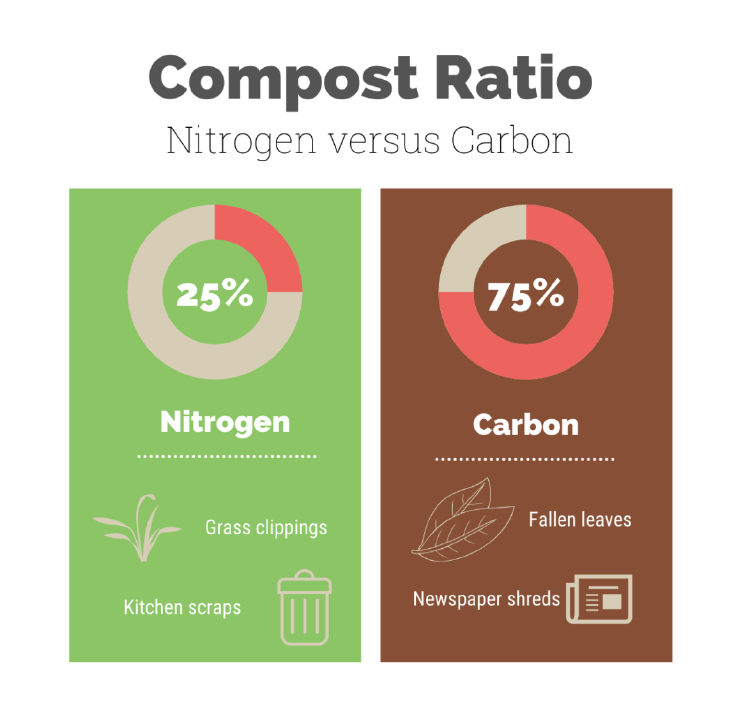
Greens, Browns and Compost Ratio.
Although it is true that there i no one unique magic recipe for the perfect compost, there are some basic aspects you should be familiar with to do right with your composting experience.
🟢 Greens such as leaves, grass or even food scraps are organic materials with a high level of nitrogen.
🟤 Browns are for example, paper, wood chips or stalks and these are rich in carbon since they come from wood.
The right amount of nitrogen provided by greens together with the right amount of browns plus good air circulation and moisture, all perfectly balanced, is what we call compost ratio. A compost with a balanced compost ratio will surely be successful and won't face many problems. We have every detail you need to now about this in our article The Perfect Compost Ratio: Greens to Brown Balance.
So, this means that the right amount of greens and browns under natural conditions, will produce humus- a particularly rich soil which is used as natural fertilizer in gardening- after a couple of months. Of course conditions can be manipulated to obtain richer results. But if you let it all happen at its natural pace, that would be great! When carried out under more supervised conditions, earthworms and fungi start to thrive, making an incredible contribution by helping breaking up the materials faster.
It's true that, especially at the beginning, the amount of data can be overwhelming and may be you follow all the steps, but somehow your compost goes wrong and it looks wet: well, that's not a good sign. Compost needs to be moisturized but too much humidity will be counterproductive. Why? Because the excess of water will make the air circulation very difficult, and the organic waste will decompose in the wrong manner.
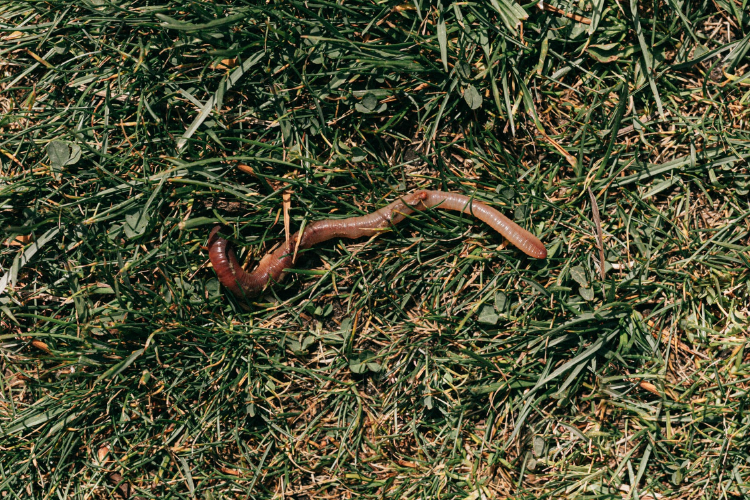
Remember the key to a good compost is a balanced compost ratio. In case you want to know more about composting problems, please check our article Composting Problems: Types and How to Deal with Them
Does your compost look like super sticky or wet? Well, there might be a couple of reason for this. Let's see:
Stickiness and bad smell are common composting problems, and they are usually the consequence of an excess of moisture. Remember that keeping a balanced compost ratio is key to a successful compost! And the right air conditioning is part of it. So, composting needs air, oxygen flow to help the aerobic process.
A very simple solution to this is leveling up the ratio of browns, that's to say, the amount of dry elements going to your compost pile. This could bring back the balance back by adding carbon to the whole mix. If you are thinking about getting a compost bin, there are some of them which come with a built-in faucet to help drain the extra water. Good tip!
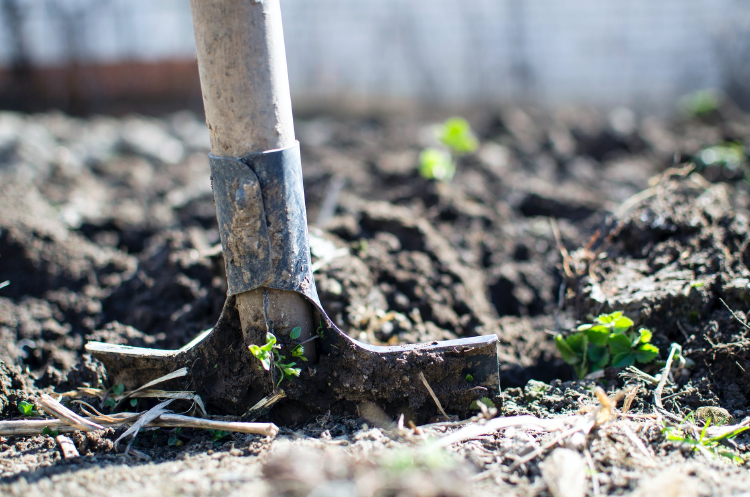
In case you are using a plastic container bin for your compost, you will have to keep an eye on this. There is nothing wrong with using bins for you compost! You may live in a small place and composting bins come very handful in this sense. The point is that most composting bins come with lids -or some sort of cover- to keep the right temperature and the bad odors away.
But this might be a problem if you do not air all up from time to time. If you don't want your compost to go rotten and smell terrible, try to periodically remove the lid for some time and stir the mix.This will prevent dumping from happening and it will revive your soggy compost.
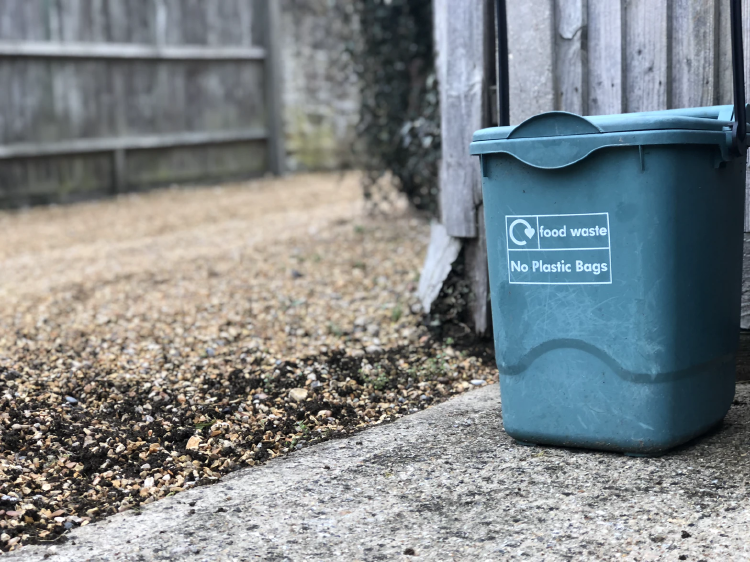
If your compost is outdoors and it's spring or summer, you will have to keep an eye on temperature as well. Too much heat allows for more humidity among the compost elements. So, you may consider leaving the lid off to avoid having a too high temperature that will make all of your hard work go wrong.
For reference, the ideal temperature range is 135°-160° Fahrenheit for organic waste to break down properly. Temperatures above or below this range for extended periods are not recommended.That's why it's do important that you pay attention to your compost in hot weather.
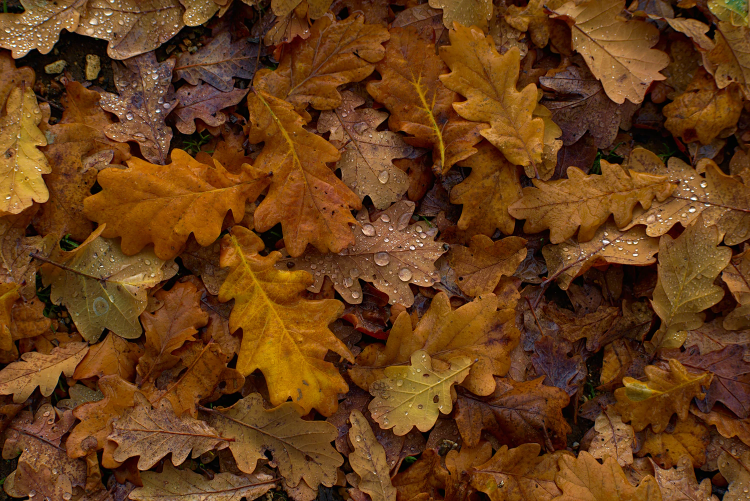
4. Compost with bugs
Bugs around your compost like maggots are not a good sign at all! And this may even indicate that your compost has already started to go wrong and will probably smell badly by now. If this is happening to your compost, don't worry! We got ya!
The thing is that greens like vegetable peelings and grass clippings have already a high level of water content, which makes them heavy to the mix.
So, if you drop all greens all of a sudden and you don't balance this out with the right amount of browns, your compost will start to accumulate too much water. This excess of water will not allow a good air circulation because every space will be filled by water, which makes your compost look too compacted.
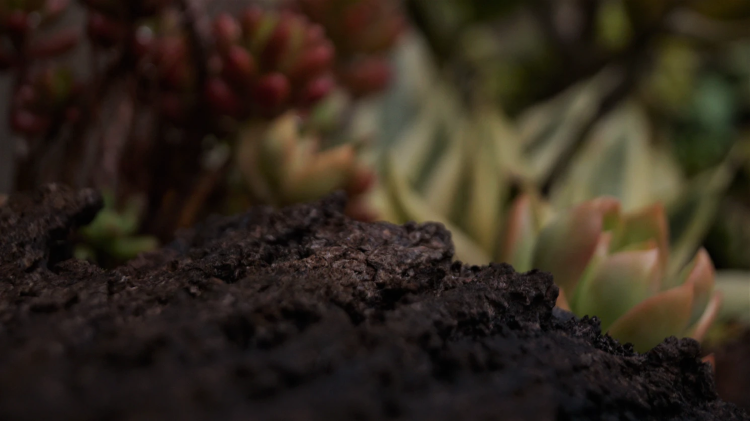
Besides, a compacted pile of water-rich material will attract thirsty visitors, not to mention the amount of microbes that will thrive in your wet pile. Microbes will ruin your compost completely and will be responsible for the bad smells that the pile gives away. What can you do? Simple! Add more browns like dry leaves to your compost, air and stir all up!
Maybe your compost already looks a mess- we've all been there somehow!, so a good alternative might be to remove everything from your pile or bin and lay it all again, bur more carefully this time, considering all the tips we gave you!
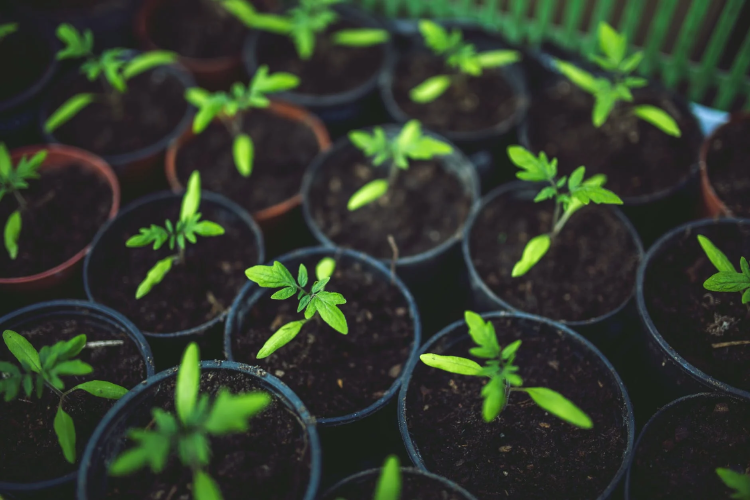 Rich soil - Pexels
Rich soil - PexelsIf you are having problems with your compost, do not give up! Remember it's all organic, nothing will become waste. That's something great about composting... the never ending circle of life.
But do not forget that a perfect compost implies perfect balance. Fresh compost has a fine texture and earthy smell as if you were right there in the middle of the forest.
The original organic waste used to make the compost should slowly become fresh soil. Mature compost is gold for your plants and flowers. So, even though you may experience problems, you can become the perfect compost warrior! till next time...